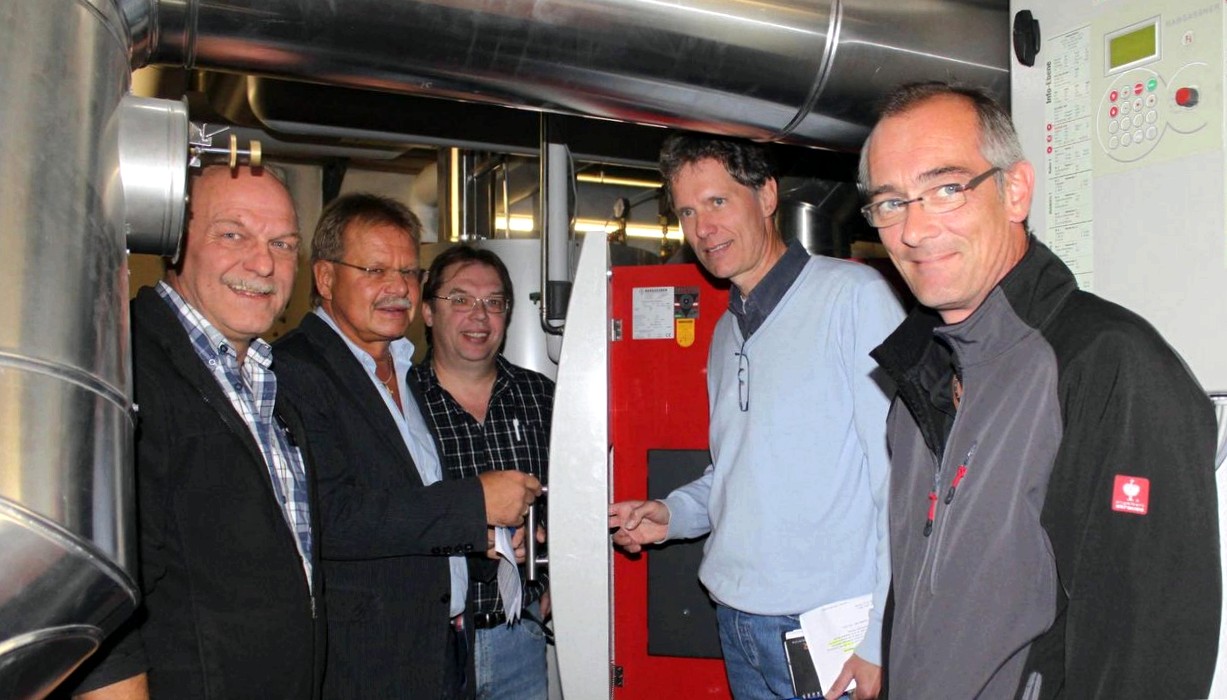Wood pellets keep city hall warm

The city of kronach now saves around 25,000 euros a year in heating costs. Ten percent less money has to be spent on energy costs and about 248 tons less co2 per year than in previous years will be blown into the air in the future. This is possible thanks to the new wood pellet heating system, which heats the rooms in the kronach town hall and three other houses in the upper town.
For the mayor of kronach, wolfgang beiergroblein (), it is clear that the 350,000 euro investment has been well spent. He pointed out that in the past there were often problems with the former heating system from 1973, consisting of two gas boilers, each with an output of 750 kilowatts. He is pleased that the city council finally unanimously approved the renewal of the heating system with expansion of the local heating network at the may 2009 meeting after detailed discussions.
Two pellet boilers with a capacity of 200 kilowatts and 110 kilowatts respectively, as well as three buffer storage tanks, have now been installed. To cover peak demand, for example at very cold temperatures, a low-temperature oil-fired boiler was also installed as an emergency heat generator. A pellet store with a blow-in system was also built in the second basement of the town hall, with a rough volume of about 50 cubic meters, sufficient for 33 tons of pellets. And since two residential buildings in the festungsstrabe 1 and 3 were also connected, a district heating pipeline with about 65 meters of piping had to be laid to them.
According to city planner daniel gerber, it was also important to him and his team to adjust the requirements to actual consumption. There was an overcapacity in the previous heating plant. Wolfgang beiergroblein pointed out that the city had benefited from being able to take advantage of the k-program for renewable energies for the construction of automatically fed plants for the combustion and gasification of solid biomass. Thus the repayment by grants is demanded.
Solar plant was not possible
With regard to the question of whether a solar system for hot water consumption would not have been appropriate, gerber pointed out that this option had not been possible because of the historic buildings, which are often also listed, and also because of the cityscape and ultimately also because of the cost.